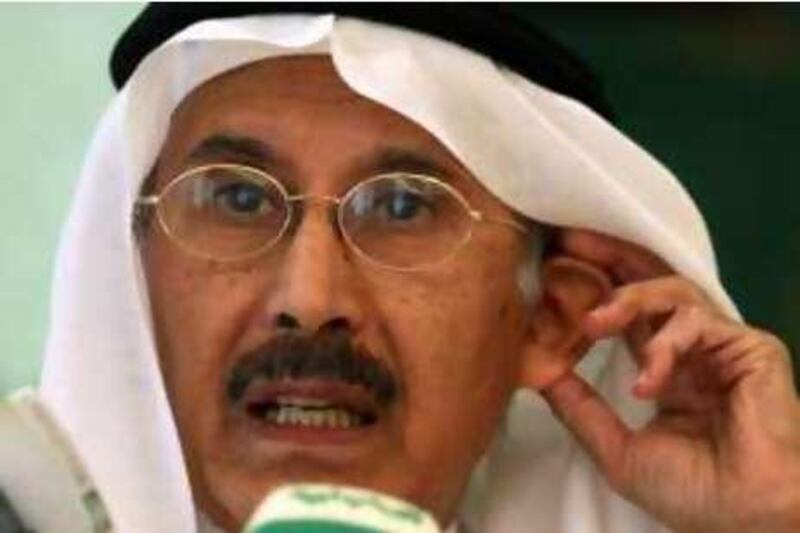Gulf central banks tried to calm market fears yesterday by pledging to inject cash to ease the liquidity problem in the banking sector. The Kuwaiti Banking Association called on the government to put medium- and long-term deposits in commercial banks "particularly in this period, to support economic activities". Kuwait's central bank responded by saying that it will provide liquidity to the market if needed.
Interbank rates have almost doubled since last month, when the central bank withdrew a facility guaranteeing Kuwaiti dinars at a fixed rate on the interbank market. This follows the UAE central bank's announcement of a Dh50 billion (US$13.6bn) facility at the beginning of the week. Interbank rates in the UAE have doubled since June, from 1.8 per cent to 3.6 per cent. Saudi authorities, who were initially keen to play down any liquidity crisis - inflation remains more of a concern - finally issued a statement from the Saudi Arabian Monetary Agency saying that money will be available, but the facility has yet to be used.
Mushtaq Khan, a regional economist at Citigroup, said that while countries were grappling with the liquidity problem, they were acting unilaterally to deal with it in the best way for their individual economies. "What is a big problem in the UAE might not be so much of a big problem in Saudi because, for instance, Saudi doesn't have the same worries about the property market," he said. "At some stage, these divergences [in monetary policy] will have to be addressed."
However, in the UAE, bankers are unclear on how exactly the central bank plans to inject money into the system. "The regulatory authority must have the plan in place, but we are still waiting to hear how the funds will be invested," said one senior banker at an international brokerage house. "I'm surprised it's taking this long because everybody is seeking reassurance at this point, and waiting definitely doesn't boost sentiments."
According to the communications head at the central bank, there is no information regarding the structure of the funds. Calls to the Treasury Department and governor's office went unanswered. "As an analyst, I find many loose ends regarding the structure of the fund facility. If banks borrow directly from the central bank, will that send out a signal of desperation? By potentially solving the lending crisis, will authorities stir up serious inflation worries?" asked Deepak Tolani, a senior equity research analyst at Al Mal Capital.
While trying to resolve the issue of low liquidity, it would be difficult to harness inflation once the money supply was increased, particularly since local monetary policy followed that of the US, which was trying to resuscitate the economy, he said. Meanwhile, analysts are left to puzzle out how the funds could be put into the system. "In terms of equity markets, some liquidity should be going through funds, whether semi-government or quasi-government, to ensure stability," said Mohamed Ali Yassine, the head of securities at Shuaa Capital. "By doing this, positive momentum will return the market to reasonable prices."
As financial turmoil escalates abroad, regional markets remain jittery. While waiting for a breakdown of the facility, Emirates interbank offered rates continue to rise while the stockmarkets fall, with the DFM closing down 3.55 per cent yesterday. The uncertainty comes at a critical time, when regional markets will be closed for the Eid al Fitr holidays. Few investors will want to leave positions open during that period.
The DFM will be closed from next Tuesday, Sept 30 to Sunday, Oct 5, according to a statement issued on the DFM's website. * Additional reporting by Travis Pantin shamdan@thenational.ae tpantin@thenational.ae





